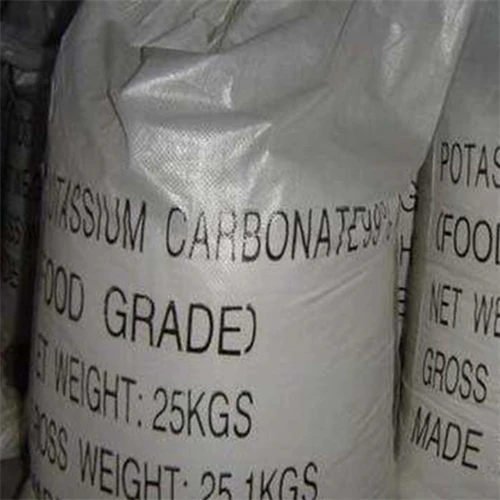Warning: Undefined array key "title" in /home/www/wwwroot/HTML/www.exportstart.com/wp-content/themes/1198/header.php on line 6
Warning: Undefined array key "file" in /home/www/wwwroot/HTML/www.exportstart.com/wp-content/themes/1198/header.php on line 7
Warning: Undefined array key "title" in /home/www/wwwroot/HTML/www.exportstart.com/wp-content/themes/1198/header.php on line 7
Warning: Undefined array key "title" in /home/www/wwwroot/HTML/www.exportstart.com/wp-content/themes/1198/header.php on line 7
- Afrikaans
- Albanian
- Amharic
- Arabic
- Armenian
- Azerbaijani
- Basque
- Belarusian
- Bengali
- Bosnian
- Bulgarian
- Catalan
- Cebuano
- China
- China (Taiwan)
- Corsican
- Croatian
- Czech
- Danish
- Dutch
- English
- Esperanto
- Estonian
- Finnish
- French
- Frisian
- Galician
- Georgian
- German
- Greek
- Gujarati
- Haitian Creole
- hausa
- hawaiian
- Hebrew
- Hindi
- Miao
- Hungarian
- Icelandic
- igbo
- Indonesian
- irish
- Italian
- Japanese
- Javanese
- Kannada
- kazakh
- Khmer
- Rwandese
- Korean
- Kurdish
- Kyrgyz
- Lao
- Latin
- Latvian
- Lithuanian
- Luxembourgish
- Macedonian
- Malgashi
- Malay
- Malayalam
- Maltese
- Maori
- Marathi
- Mongolian
- Myanmar
- Nepali
- Norwegian
- Norwegian
- Occitan
- Pashto
- Persian
- Polish
- Portuguese
- Punjabi
- Romanian
- Russian
- Samoan
- Scottish Gaelic
- Serbian
- Sesotho
- Shona
- Sindhi
- Sinhala
- Slovak
- Slovenian
- Somali
- Spanish
- Sundanese
- Swahili
- Swedish
- Tagalog
- Tajik
- Tamil
- Tatar
- Telugu
- Thai
- Turkish
- Turkmen
- Ukrainian
- Urdu
- Uighur
- Uzbek
- Vietnamese
- Welsh
- Bantu
- Yiddish
- Yoruba
- Zulu
Nov . 22, 2024 13:21 Back to list
sustainable future of adipic acid: bio-based solutions and
Sustainable Future of Adipic Acid Bio-Based Solutions
Adipic acid, a key precursor in the production of nylon and other polyamides, plays a significant role in various industries, including textiles, automotive, and electronics. Traditionally derived from petroleum, its production is associated with substantial greenhouse gas emissions and environmental degradation. However, the shift towards sustainability has sparked interest in bio-based solutions that can offer a more eco-friendly alternative for adipic acid synthesis.
Bio-based adipic acid production involves the use of renewable biomass, such as sugar, corn, or waste materials, which can significantly reduce the carbon footprint associated with this chemical. Numerous research efforts are focused on using microbial fermentation and enzymatic processes to convert biomass into adipic acid. These methods not only utilize sustainable feedstocks but also minimize energy consumption and waste generation compared to conventional fossil fuel-based processes.
One promising approach is the metabolic engineering of microbes, which can be optimized to enhance the yield and efficiency of adipic acid production
. By manipulating specific pathways within microorganisms, researchers have reported success in producing adipic acid using various substrates, effectively turning agricultural waste into valuable chemicals. This innovation not only provides an environmentally friendly alternative but also supports the circular economy by valorizing waste materials.sustainable future of adipic acid: bio-based solutions and

Furthermore, the shift to bio-based adipic acid can stimulate economic growth by creating new markets and job opportunities in the biomanufacturing sector. As industries and consumers increasingly prioritize sustainability, the demand for bio-based products is expected to rise, making investments in bio-based adipic acid production an attractive prospect for businesses.
In addition to the environmental and economic benefits, utilizing bio-based solutions aligns with global sustainability goals, such as the United Nations Sustainable Development Goals (SDGs). By reducing dependency on fossil fuels, enhancing resource efficiency, and lowering emissions, bio-based adipic acid production can contribute significantly to combating climate change and promoting sustainable industrial practices.
In conclusion, the sustainable future of adipic acid hinges on the successful adoption and scaling of bio-based solutions. By leveraging renewable resources and innovative biotechnological advancements, the industry can transition towards a more sustainable model that not only benefits the environment but also fosters economic development. As research continues to advance in this field, the potential for bio-based adipic acid to revolutionize the market remains promising, paving the way for a greener and more sustainable chemical industry.
Latest news
-
Certifications for Vegetarian and Xanthan Gum Vegetarian
NewsJun.17,2025
-
Sustainability Trends Reshaping the SLES N70 Market
NewsJun.17,2025
-
Propylene Glycol Use in Vaccines: Balancing Function and Perception
NewsJun.17,2025
-
Petroleum Jelly in Skincare: Balancing Benefits and Backlash
NewsJun.17,2025
-
Energy Price Volatility and Ripple Effect on Caprolactam Markets
NewsJun.17,2025
-
Spectroscopic Techniques for Adipic Acid Molecular Weight
NewsJun.17,2025

